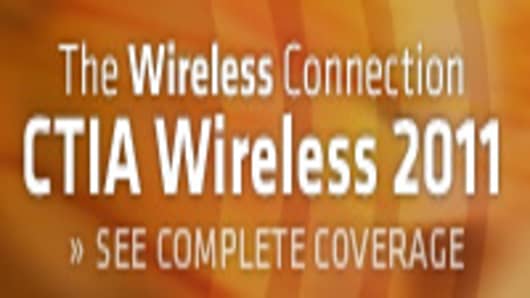Deutsche Telekom and AT&T are confident the deal under which AT&T will purchase rival T-Mobile USA from the German telecoms giant will be cleared by regulators, despite concerns that the agreement might create a duopoly in the US mobile market.
On Sunday, the two companies announced the $39 billion stock-and-cash transaction that would combine two of the four largest US wireless carriers.
“This is probably one of the most fiercely competitive markets in the Unites States and if you look at the wireless market in the US, it’s probably one of the most fiercely competitive in the world," Randall Stephenson, CEO of AT&T , the second-biggest carrier in the United States, told CNBC.
“If you look at the United States marketplace and you look at the top 20 markets in the US, in 18 of the top 20 markets the customer has a choice of five different options to provide wireless service,” he said.
“We feel very comfortable that when the facts are surfaced and we really drill into the facts, this is a transaction that ought to be approved,” he added.
Stephenson was reacting to concerns that the deal might a create a "duopoly" of AT&T and Verizon and lead to higher prices for consumers.
The deal “allows us to advance a very important public policy objective: deploy mobile broadband across the United States,” Stephenson said.
It would enable the US government to reach its objective of creating a wireless network which connects 98 percent of the population to super-fast Internet services.
AT&T feels fairly confident about the state of theUS economy, Stephenson said. “It just feels like every month we get better… you do make it (a commitment to this deal) in anticipation of what you think the economic performance will be,” he said.
“We don’t have any expectations it’s going to be high growth in the US economy for a while, but it’s going to be steady growth. It’s a place we want to invest,” he added .
In the US there is not only network competition but also competition from so-called virtual networks – companies which provide services but use other another provider’s network infrastructure, Deutsche Telekom CEO Rene Obermann said.
“On top of that, there is growing competition coming from so-called 'over the top players' who provide telecommunications services purely based on Internet protocol and are also fiercely competing with us,” Obermann said.
Spectrum Key for Growth
Stephenson said the deal made "all the sense in the world” when you think about where the telecoms industry is going.
“This industry is growing in terms of capacity and growth like nothing else in the United States. If you look at our data network, our volumes in the last four years are up 8,000 percent,” he said. "Our expectation is over the next 5 years, this demand is going to go up 8 to 10 times from where it is today.”
Both T-Mobile USA and AT&T run slower 2G and 3G networks and need to move their capabilities to fourth-generation networks as the demand for high-speed services grows thanks to the success of devices such as the iPad. Online gaming and video-viewing devices have also fueled demand.
“The beauty of this transaction is, we put these two businesses together and together we’re going to be able to do what neither one of us could do by ourselves and that is get to 95 percent coverage of fourth generation LTE (long term evolution) networks across the United States,” Stephenson said.




